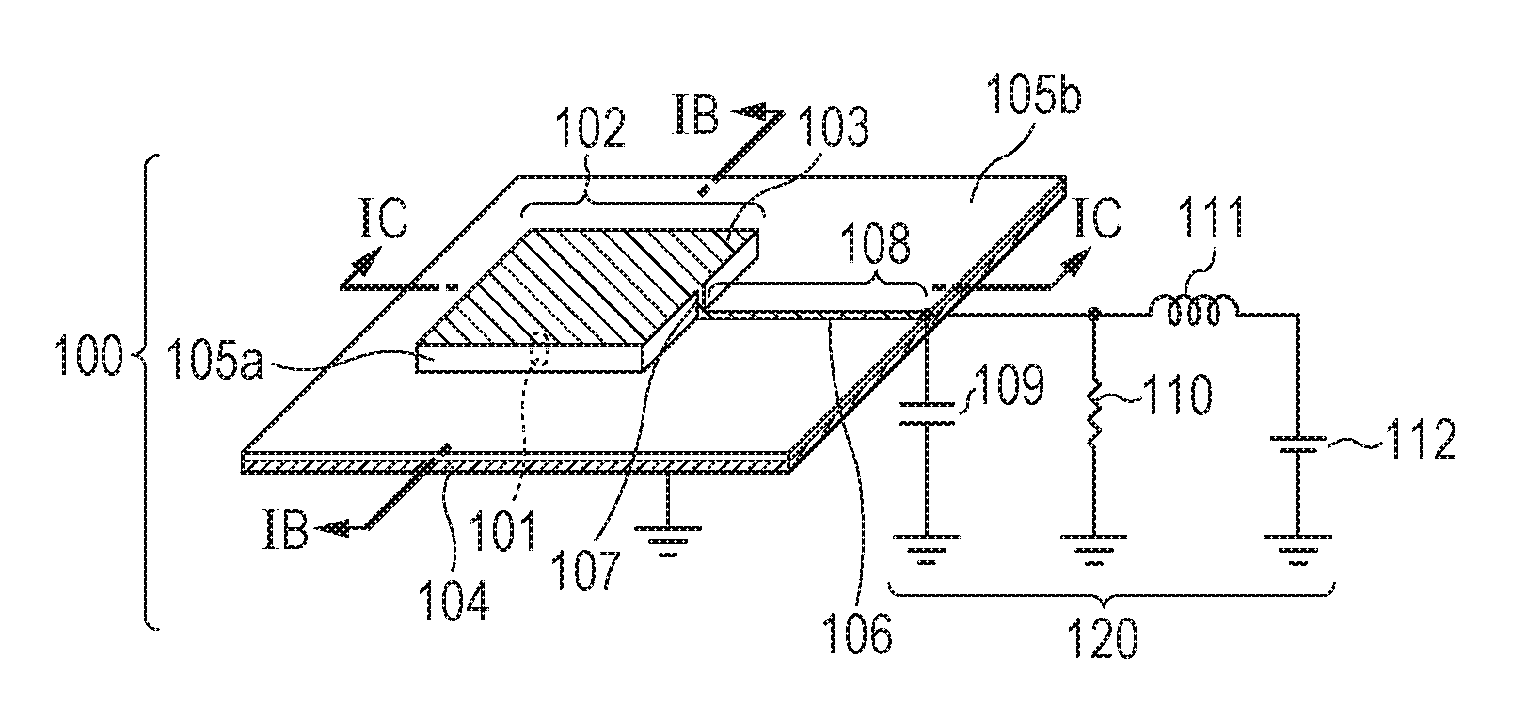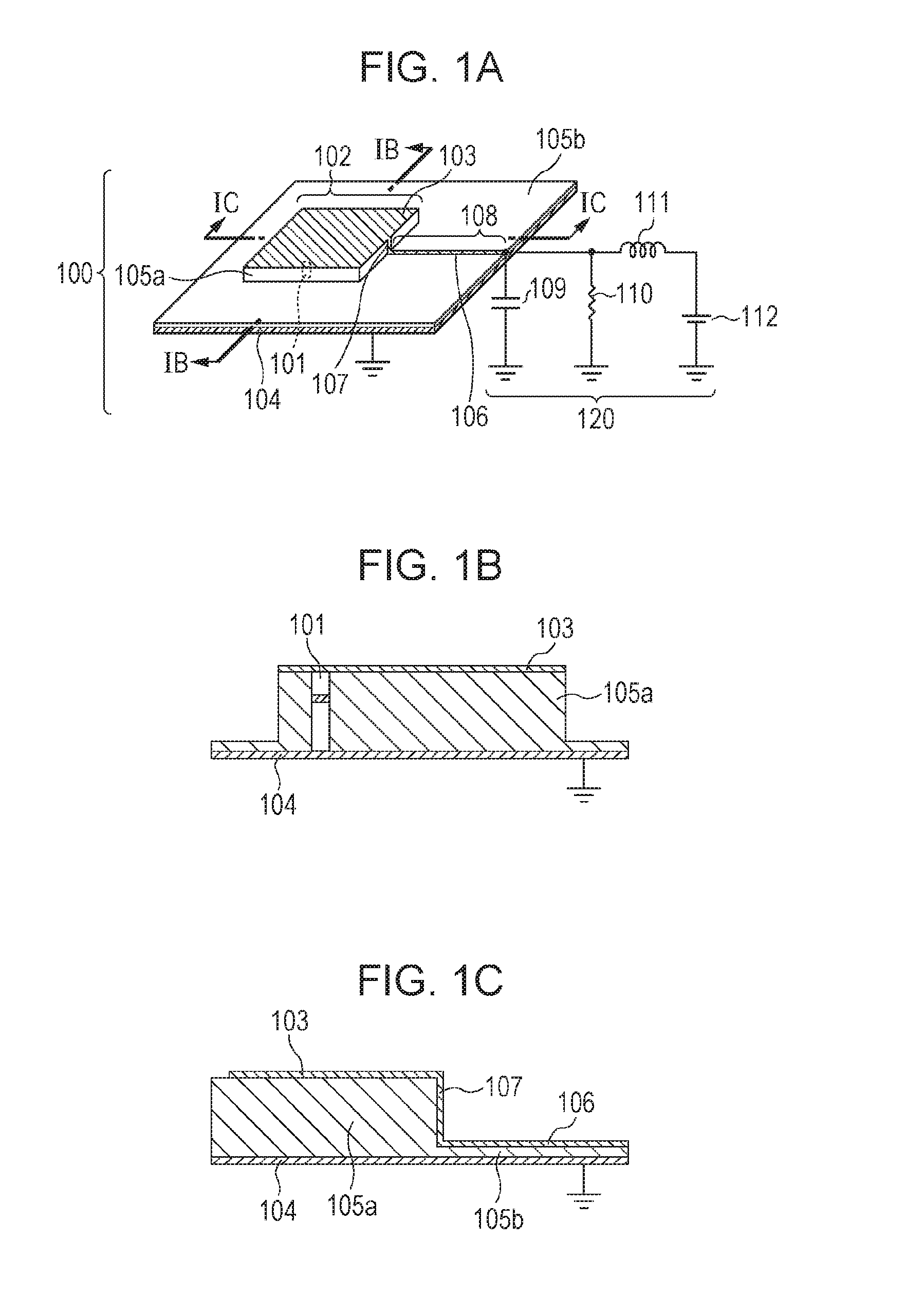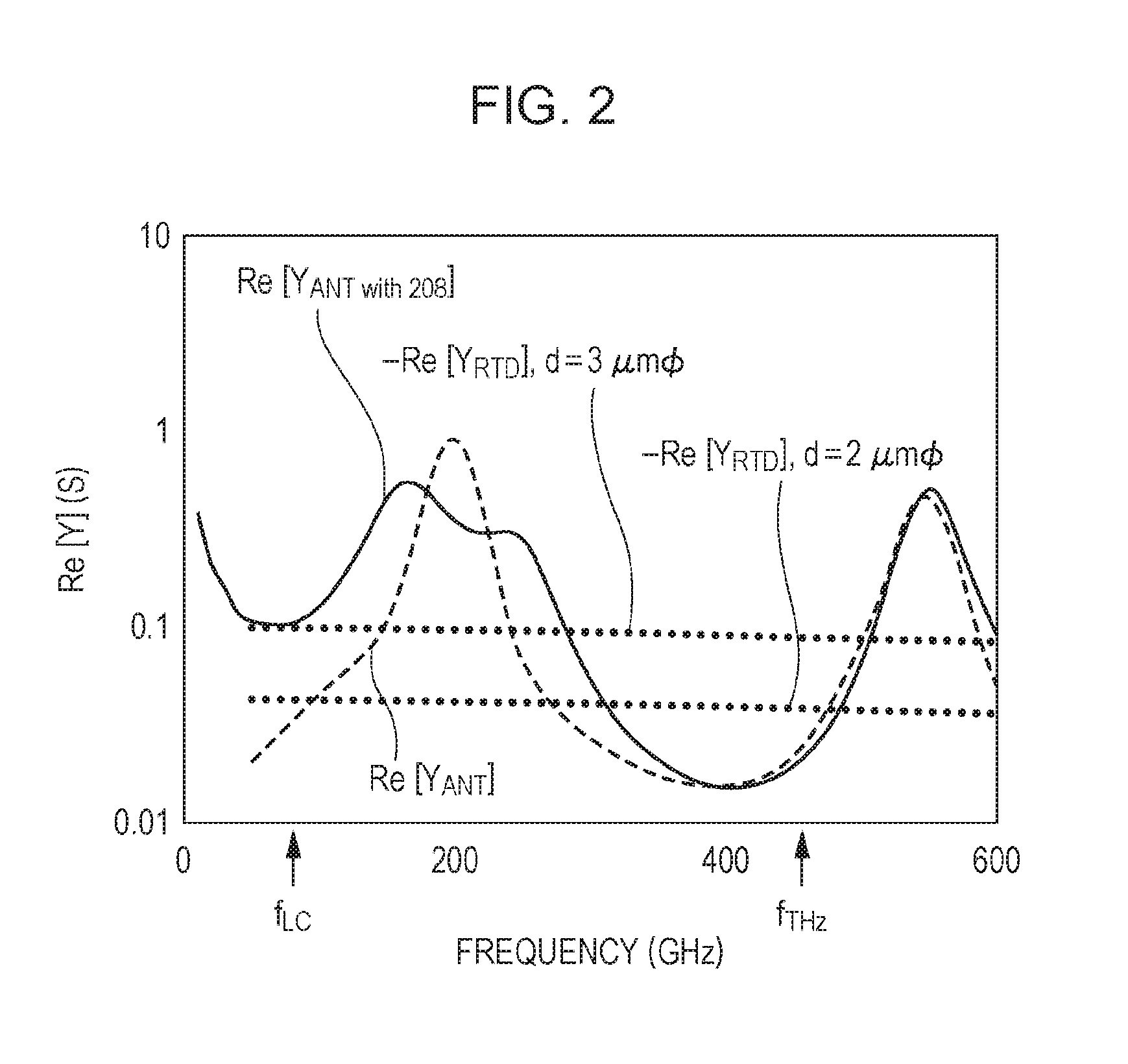Element
a technology of elements and elements, applied in the field of elements, can solve the problems of difficult circuit arrangement, difficult to employ the method of oscillator employing a microstrip resonator, and usually generate parasitic oscillation of oscillators using negative resistance elements
- Summary
- Abstract
- Description
- Claims
- Application Information
AI Technical Summary
Benefits of technology
Problems solved by technology
Method used
Image
Examples
first example
[0080]A configuration of the oscillator 200 which is an element oscillating terahertz waves of this example will be described. FIG. 3A is a perspective view of the oscillator 200. The oscillator 200 is an element which oscillates an oscillation frequency fTHz of 0.45 THz. In this example, a resonant tunneling diode (RTD) is used as the differential negative resistance element 201. The RTD 201 of this example has a multiple quantum well structure of InGaAs / InAlAs and InGaAs / AlAs on an InP substrate 230 and an electrical contact layer formed by n-InGaAs.
[0081]As the multiple quantum well structure, a triple-barrier structure is used. Specifically, a semiconductor multiple layer structure is configured by AlAs (approximately 1.3 nm) / InGaAs (approximately 7.6 nm) / InAlAs (approximately 2.6 nm) / InGaAs (approximately 5.6 nm) / AlAs (approximately 1.3 nm). In this structure, InGaAs corresponds to a well layer and lattice matching InAlAs and lattice mismatching AlAs correspond to a barrier lay...
second example
[0102]In a second example, elements of first to third modifications of the oscillator 200 according to the first example will be described. First, a structure of an oscillator 300 serving as an element of the first modification will be described with reference to FIGS. 4A and 4B. FIG. 4A is a perspective view of the element 300, and FIG. 4B is a sectional view of the element 300 taken along a line IVB-IVB of FIG. 4A. As with the oscillator 200, the oscillator 300 is an element which oscillates an oscillation frequency fTHz of 0.45 THz. A structure of a resonance unit 302 of the oscillator 300 is different from that of the resonance unit 202 of the oscillator 200. Furthermore, a structure of a line 308 of the oscillator 300 is also different from that of the line 208 of the oscillator 200 according to the first example. The structure of the line is designed where appropriate. Other configurations are the same as those of the oscillator 200, and detailed descriptions thereof are omitt...
PUM
 Login to View More
Login to View More Abstract
Description
Claims
Application Information
 Login to View More
Login to View More - R&D
- Intellectual Property
- Life Sciences
- Materials
- Tech Scout
- Unparalleled Data Quality
- Higher Quality Content
- 60% Fewer Hallucinations
Browse by: Latest US Patents, China's latest patents, Technical Efficacy Thesaurus, Application Domain, Technology Topic, Popular Technical Reports.
© 2025 PatSnap. All rights reserved.Legal|Privacy policy|Modern Slavery Act Transparency Statement|Sitemap|About US| Contact US: help@patsnap.com



